Alexandra in Shanghai | P2
Took a little detour from Shanghai for 3 days—jumped on the high-speed rail (300km/h, no big deal) and made my way to Hangzhou and then Wuzhen for a mini escape from the holidays.
After an hour traveling and a very fancy taxi ride (with some unexpectedly cool amenities like phone chargers and water bottles), I arrived in the overcrowded Hangzhou (hello, 75th anniversary of the People's Republic), the capital of Zhejiang province.
A FEW THINGS YOU SHOULD KNOW ABOUT HANGZHOU
It’s the perfect blend of relaxed atmosphere and breathtaking scenery, with ancient temples and pavilions balanced by ultra-modern spots. West Lake steals the show; small islands, dreamy arched bridges (especially mesmerizing when lit at night), and serene stretches of water covered in lotus flowers, with boats (and also a gold dragon boat).
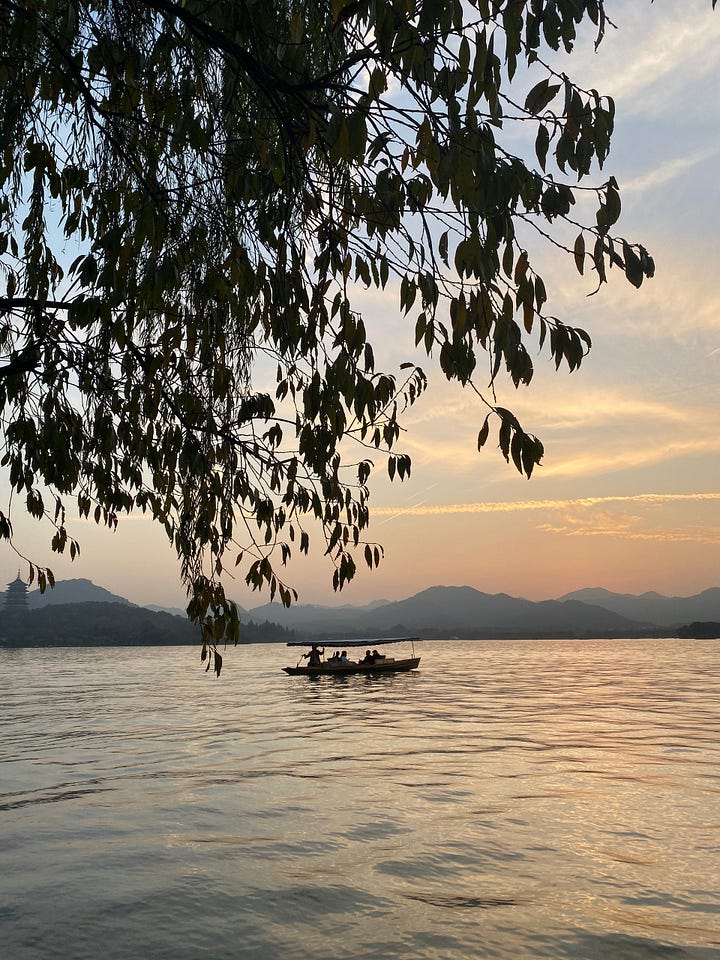
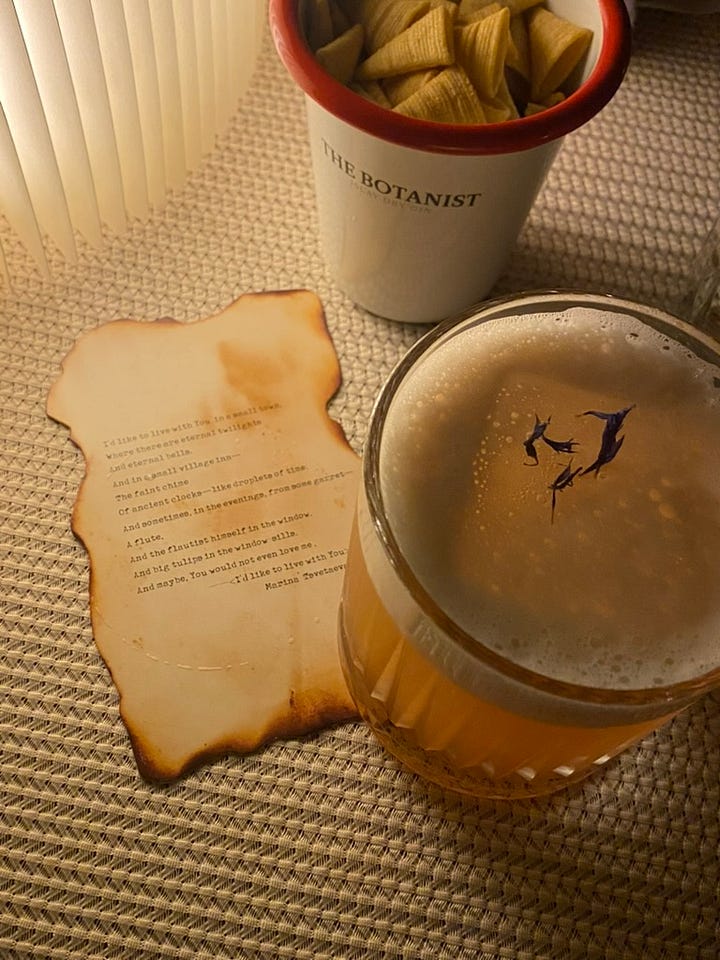
When it comes to dinner, nothing too fancy stands out, so go with what catches your eye. For drinks, though, head to Dr. Ink, a hidden speakeasy behind a bookshop (bonus: they have Twin Peaks books on display!). And before you leave, grab some high-quality silk from the famous Hangzhou Silk Town—it’s the largest silk market in China, spanning 25,000 square meters.
#1 Lingyin Temple
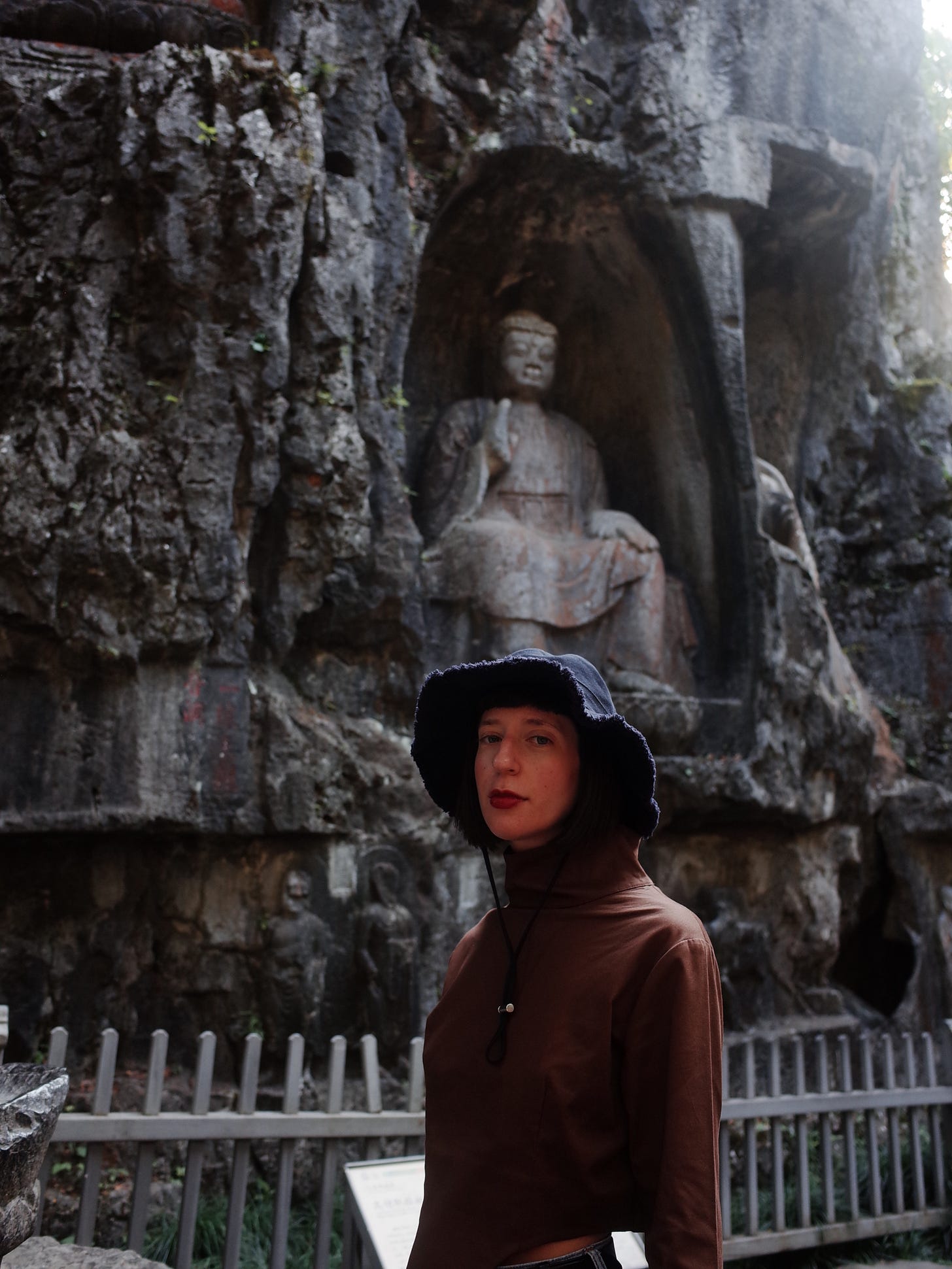
Lingyin Temple is a must-visit spot near Hangzhou. Known as the Temple of the Soul's Retreat, it’s the largest of the temples tucked away in the Wulin Mountains, renowned for their stunning grottoes and intricate rock carvings. The temple's layout follows a traditional Song dynasty five-hall structure, with the Mahavira Hall—also called the Grand Hall of the Great Sage—at its heart. Inside, there’s an impressive statue of Sakyamuni, the historical Buddha, with his right hand in the vitarka mudrā (no photos allowed). Legend has it (or maybe just a random local told me) that if you pray to this Buddha, you might get a financial blessing. Worth a shot, right?
#2 Bamboo Lined Path at Yunqi
The Yunqi Bamboo Trail sits at the southern foothills of Wuyun Mountain, just southwest of West Lake in Hangzhou. Picture a tranquil sea of bamboo, where the only sounds are birds, insects, and trickling water; pure serenity.
I could honestly walk there for hours and hours. It was the first time in ages that I felt completely at peace. And as you wander, you’ll even stumble upon the ancient remnants of the Yunqi Temple, hidden among the greenery.
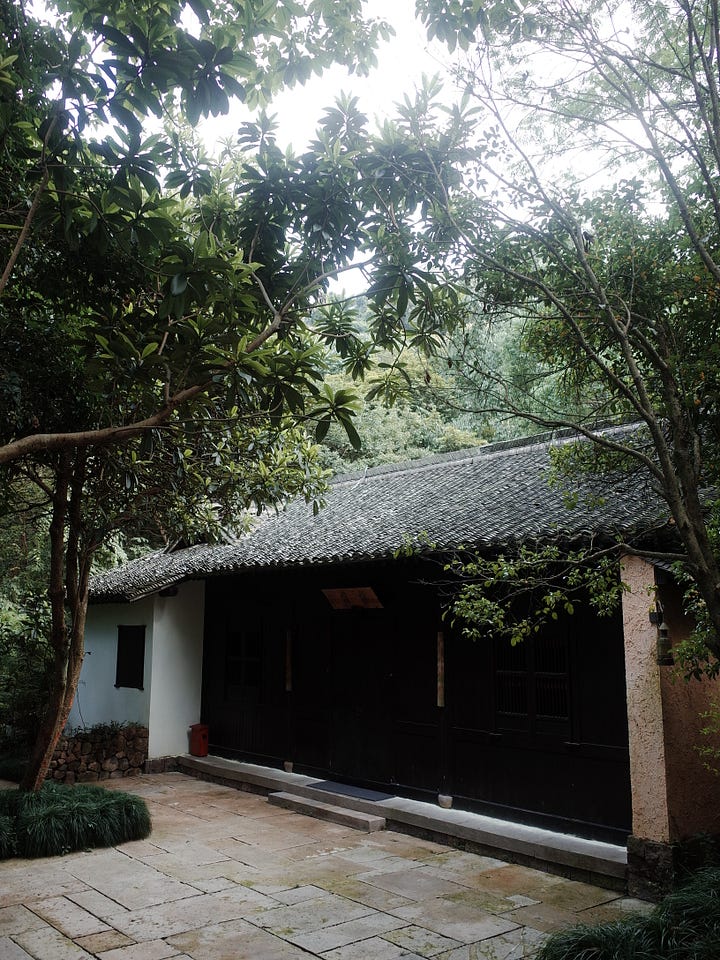

#3 Longjingshan Tea Village
This one’s for my fellow green tea lovers (it’s my favourite after-work drink). I have to say, I’ve never been anywhere in the world that smells as incredibly refreshing and sweet as those tea fields. Hiking through the rolling hills was pure bliss; at one point, I genuinely considered immigrating and becoming a tea farmer! There’s something so magical about seeing where the thing you drink daily actually comes from.
After the hike, you have to stop for a hot cup of freshly picked green tea at one of the tea houses around the village. And it always comes with a side of sunflower seeds—葵花籽 (pronounced kuíhuā zǐ), if you want to impress the locals. Last but not least, do yourself a favour and stock up on some tea to take home (always prefer the pricier option if you get asked).
NEXT STOP: WUZHEN
On a rainy, super humid day, what could be better than visiting a 1,300-year-old water town?
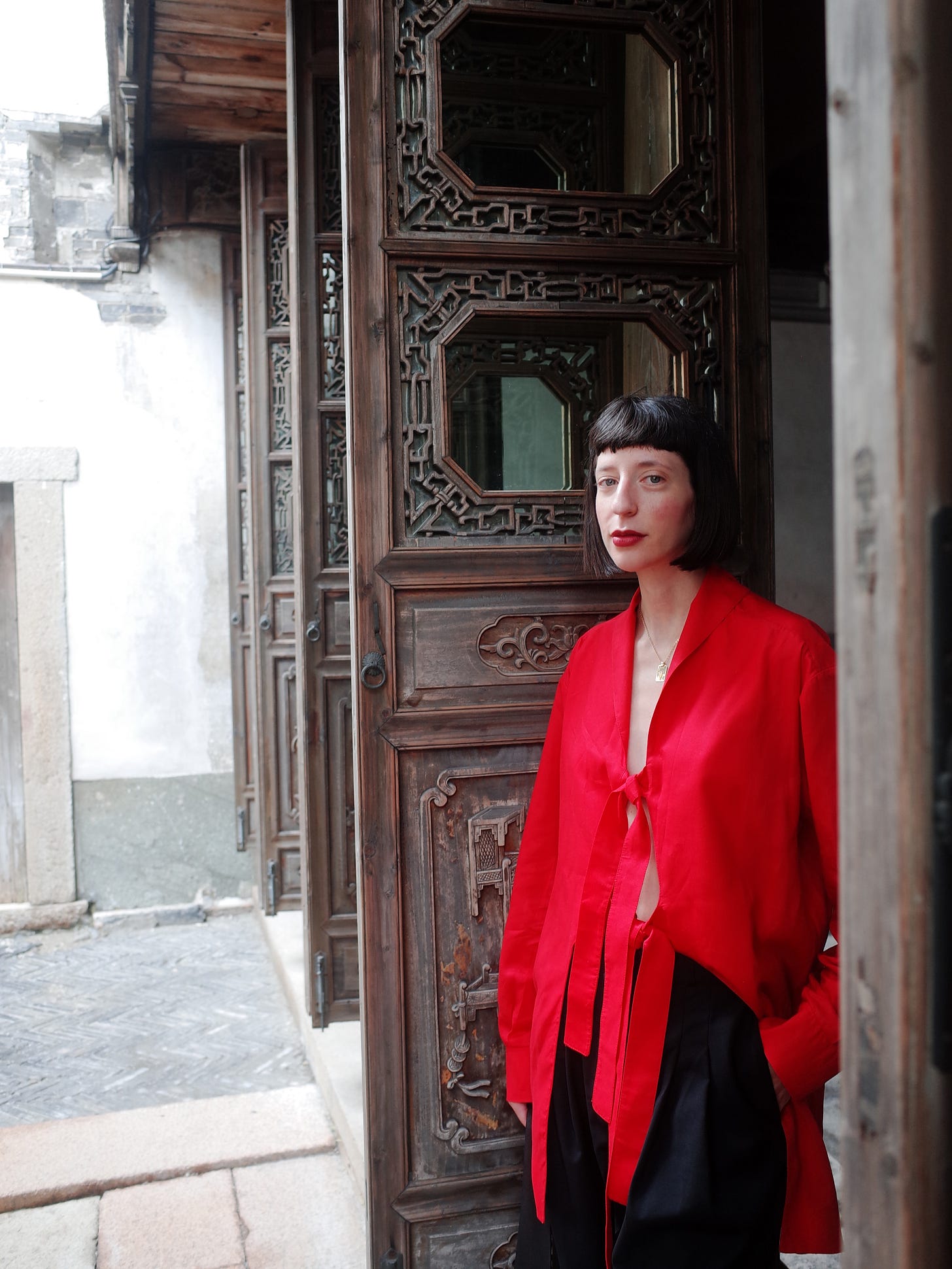
It’s known as the Venice of the East thanks to its historic canals, but Wuzhen has a charm all its own—hard to put into words, really. This scenic water town has beautifully preserved its ancient character. Small houses crafted from black bricks and grey tiles stand in stark contrast to the crisp white walls, resembling a delicate Chinese ink wash painting. You’ll spot stone bridges scattered throughout, and small boats with black awnings drifting lazily on the gentle green rivers. Whether you’re meandering along the riverside or wandering through the quaint lanes paved with flagstones, the picturesque scenery and slow pace will truly captivate you.
May I have a cup of tea please?
There’s nothing better than sipping another cup of green tea while taking in this stunning view and delightful weather. As you meander through the town, you'll discover an array of charming open-air places perfect for enjoying a drink or indulging in a traditional Chinese sweet; definitely try the grape Tanghulu, aka crispy sugar-coated fruits.


The night in Wuzhen is something else.
Shimmering lights dancing on the river’s surface and paper lanterns illuminating the pathways, all while the aromas of home-cooked dinners by the locals fills the air. Here’s a little tip: if you want to wander the charming streets after dark, be sure to book a hotel room within the ancient town (check the Zhaoming Academy Inn). After 9 PM, the entrance for outside guests is off-limits, which means you’ll have the place almost entirely to yourself + a few other savvy souls :)
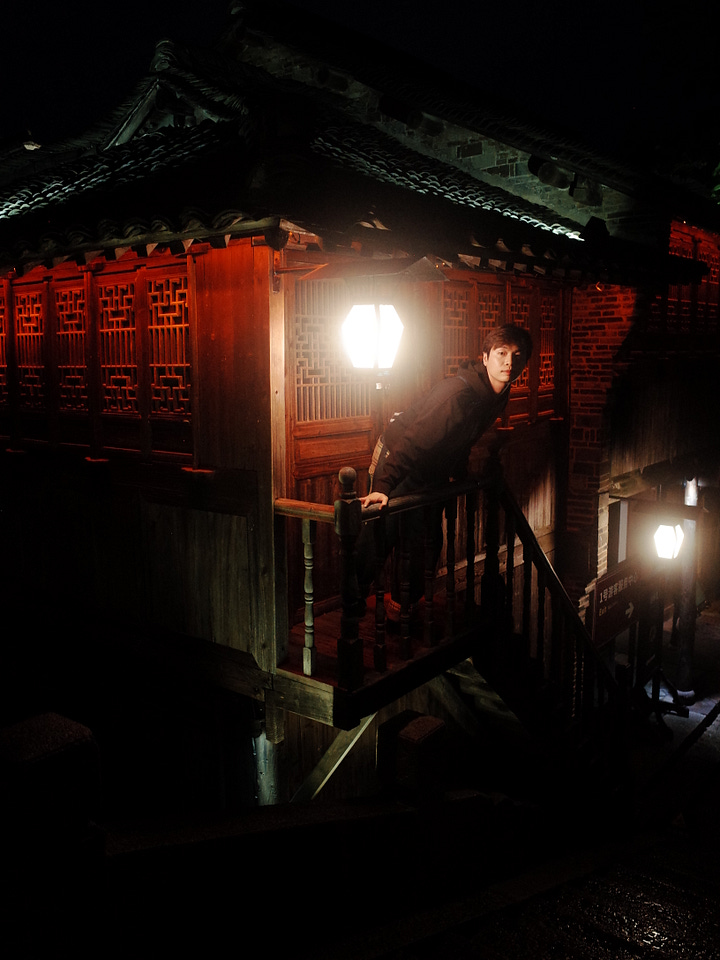
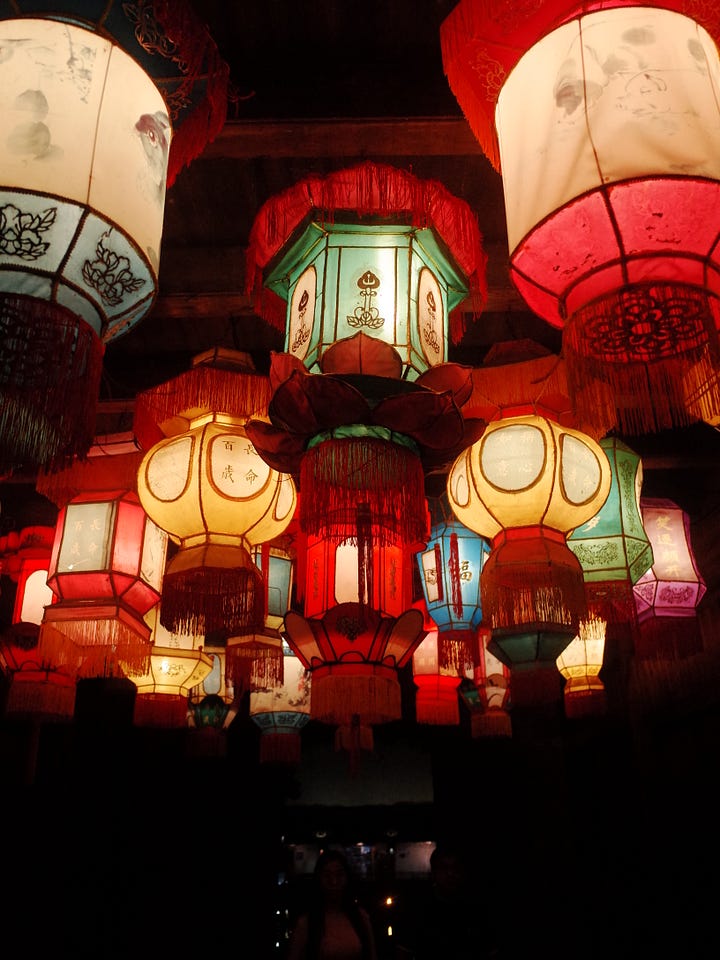
Rise and shine between 7 and 9 AM.
You won’t want to miss the breakfast street food market along the river! It’s the perfect opportunity to indulge in local delicacies like sticky rice cakes, qingtuan, zongzi, round gusao baked rolls, tofu pudding, and my latest obsession: fried dumplings! Trust me, it’s a breakfast you won’t regret.
Speaking of good food, in Wuzhen I stumbled upon a traditional soy sauce brewery for the first time. Did you know that despite all the modern tech in China, the fermentation process for soy sauce can’t be rushed? It’s like a fine wine; takes months to develop that rich, complex flavour.
Must-visit spots in Wuzhen:
The Chinese Footbinding Culture Museum: This museum sheds light on the painful tradition of footbinding, where young girls had their feet bound to make them smaller—once a symbol of status and beauty. It’s a fascinating, if not slightly unsettling, glimpse into the past.
Wuzhen Grand Theater: From local operas to classic films and storytelling sessions, it offers a delightful mix of entertainment in a lovely, serene atmosphere.
Don’t skip the chance to snap a pic behind a moon gate—those perfectly geometric openings in garden walls that also double as doorways. Xiuzhen Taoist Temple has some of the best ones. These gates are a classic in Chinese garden design, and their shapes and tiles apparently carry spiritual significance.
The Public Toilets of Wuzhen: I know, I know, it sounds odd, but hear me out! These aren’t your average loos. Imagine a fancy lobby with leather sofas and a TV screen, a cute little bridge, beautifully carved wooden dividers, and sinks made of local quarry stone. It’s all very Wim Wenders’ Perfect Days— you’ll want to check it out!

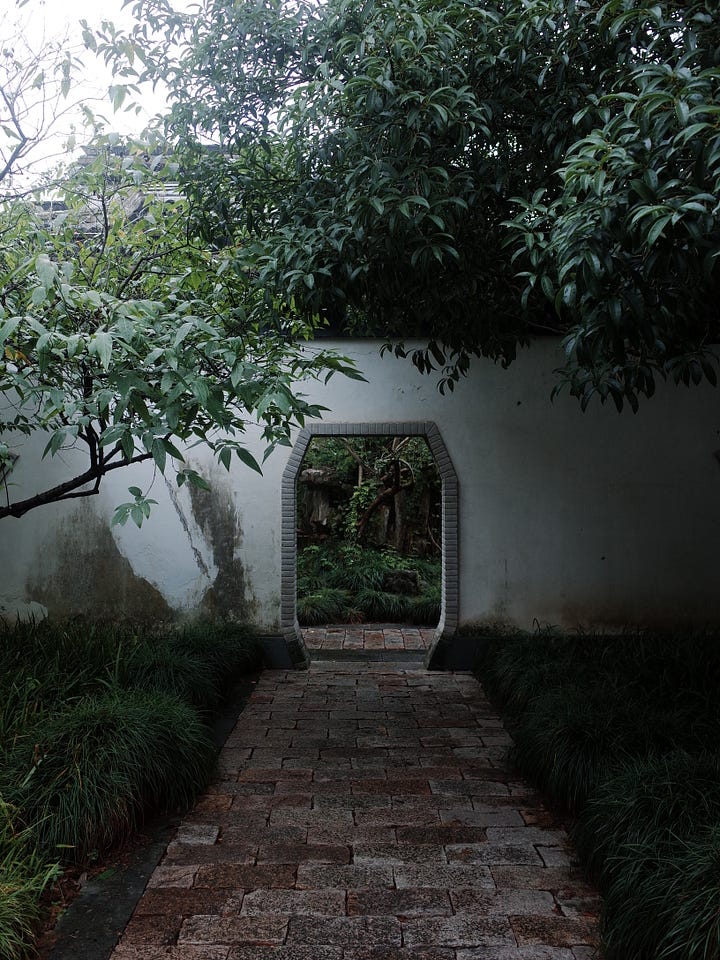
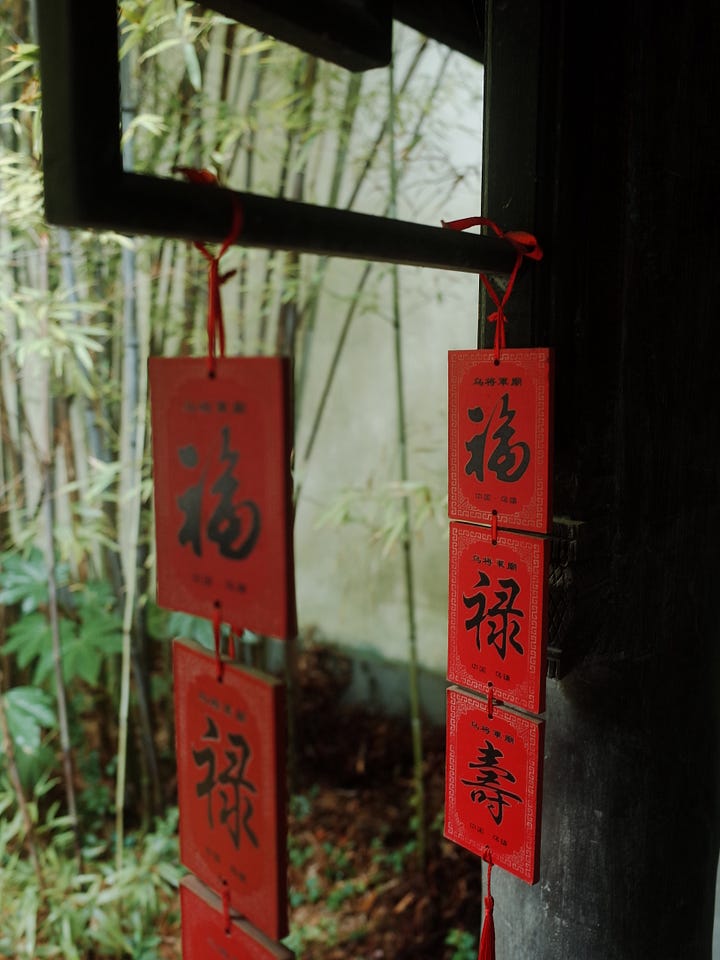
I’ll wrap up this never-ending story with a shot of me at Wuzhen’s most Insta-worthy spot—where, I accidentally stole the spot of a "sister" (you know, those girls dressed up in ancient Chinese costumes and pro-level makeup, paying photographers for that perfect Weibo moment). If you visit Wuzhen, you’ll definitely see them, too, haha! And if you're wondering who took my photos, it's the super talented Tziho @tzihoooo.
And just like that, my adventure comes to an end. Keep your eyes open and your heart ready for what’s next.
xoxo
Alexandra







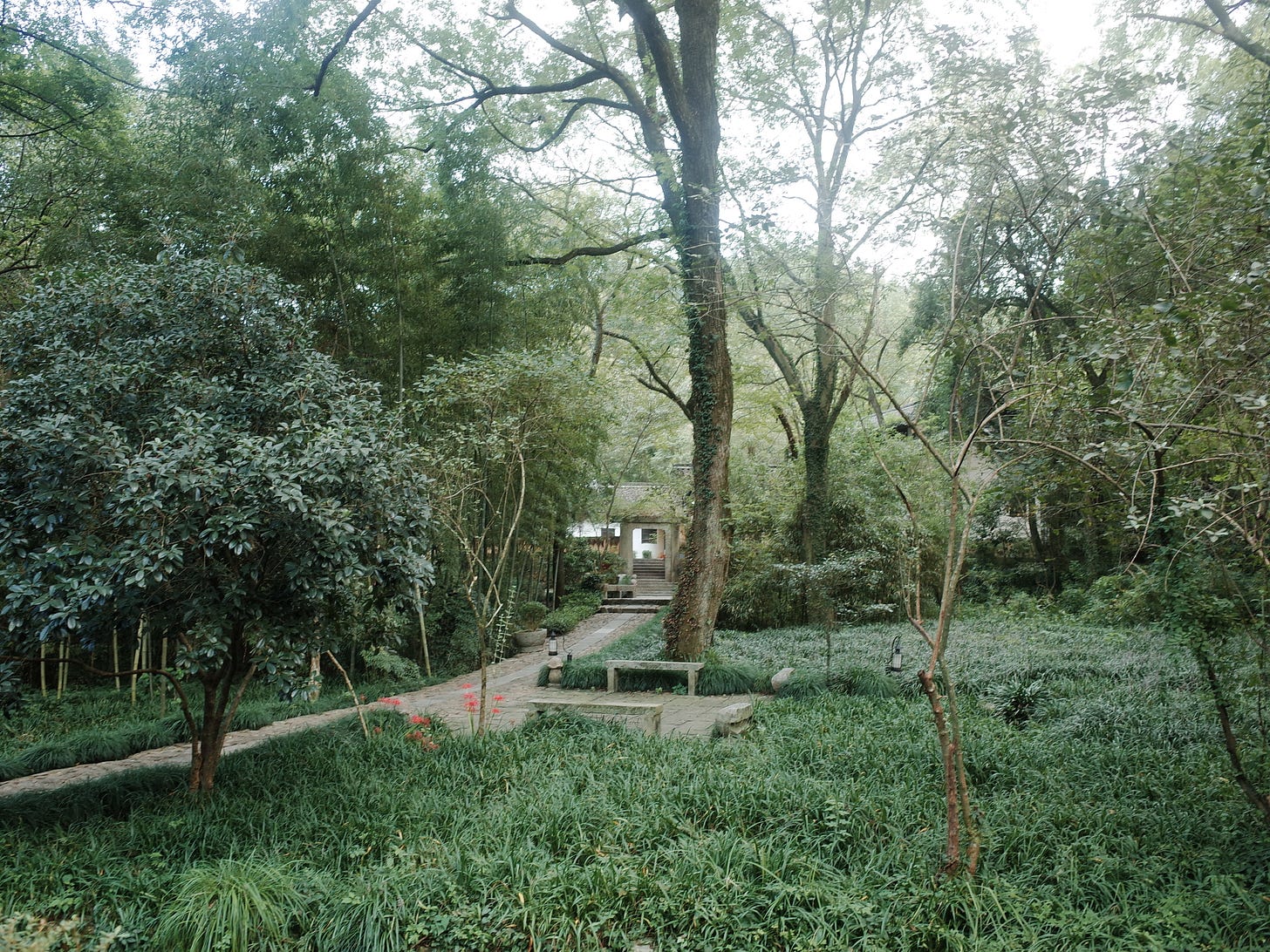


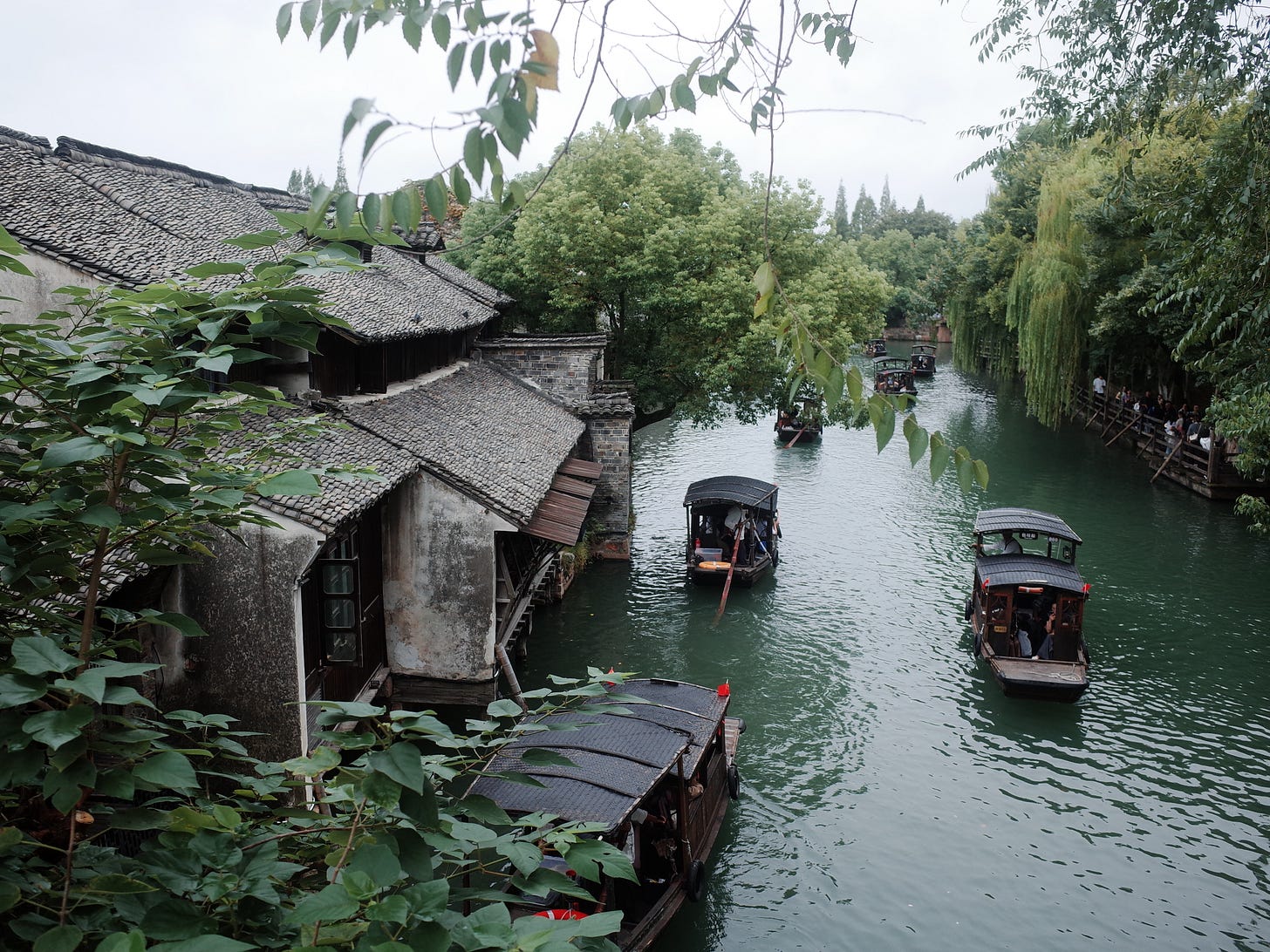
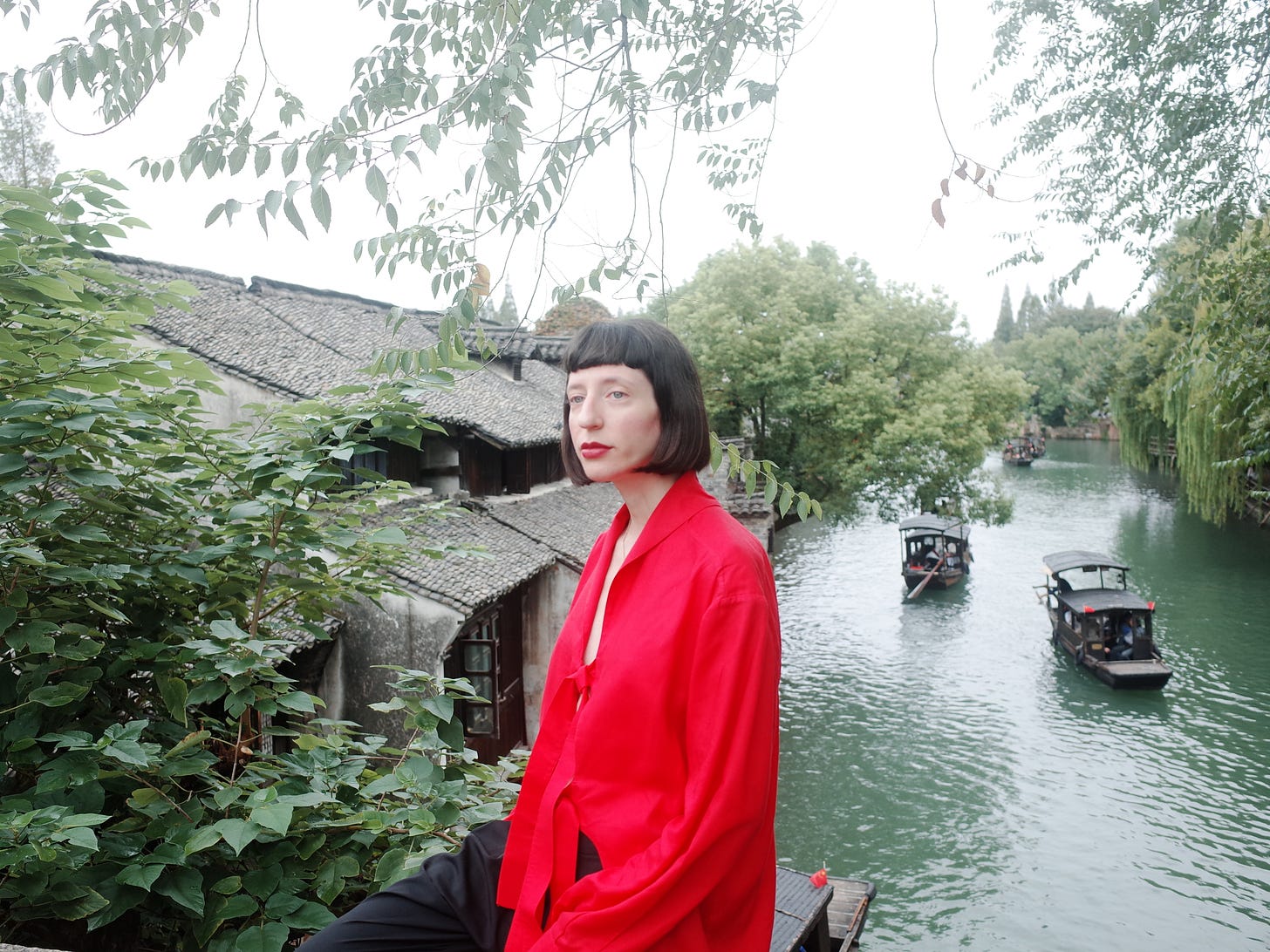
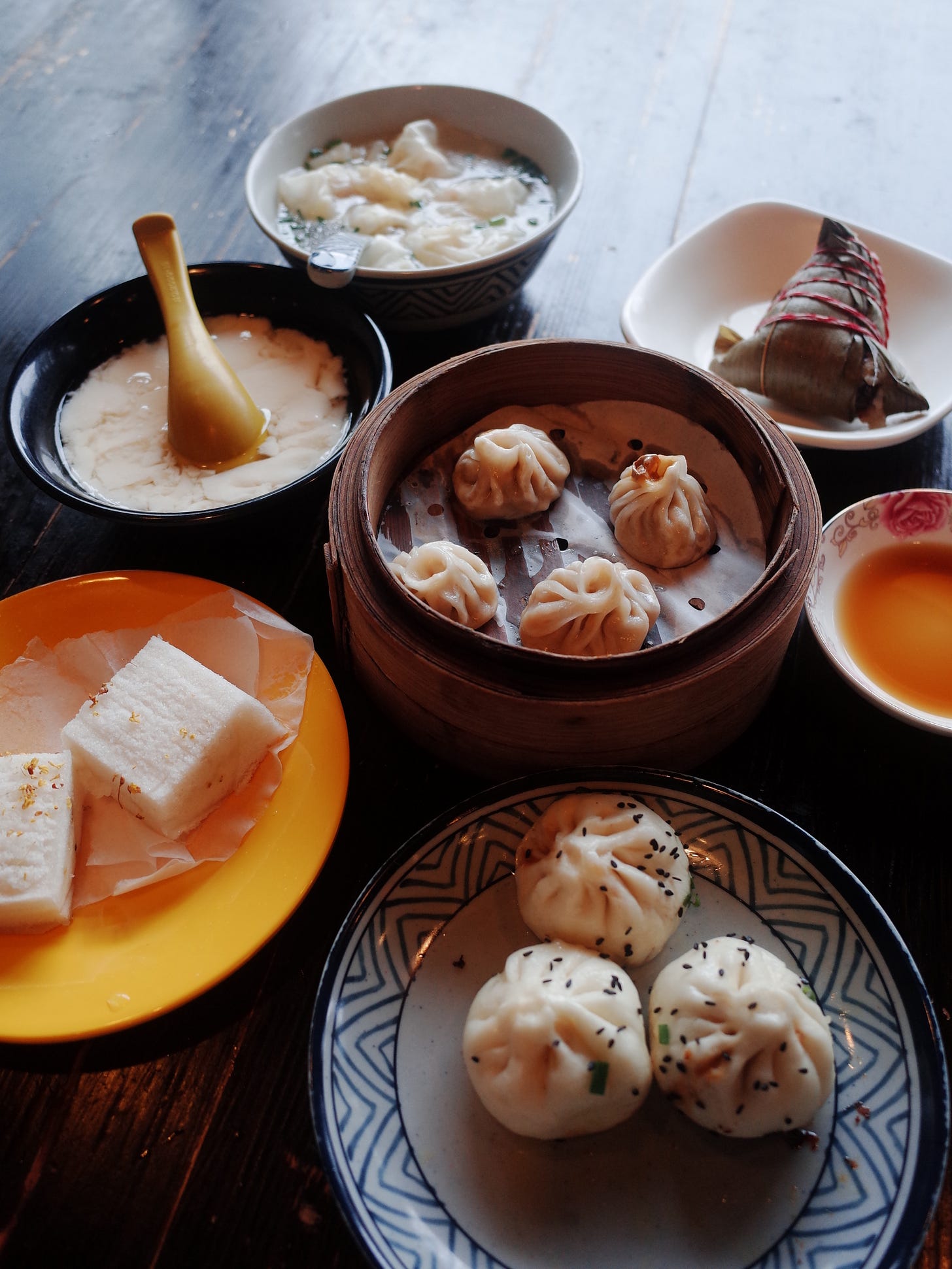


are you a Spanish teacher?